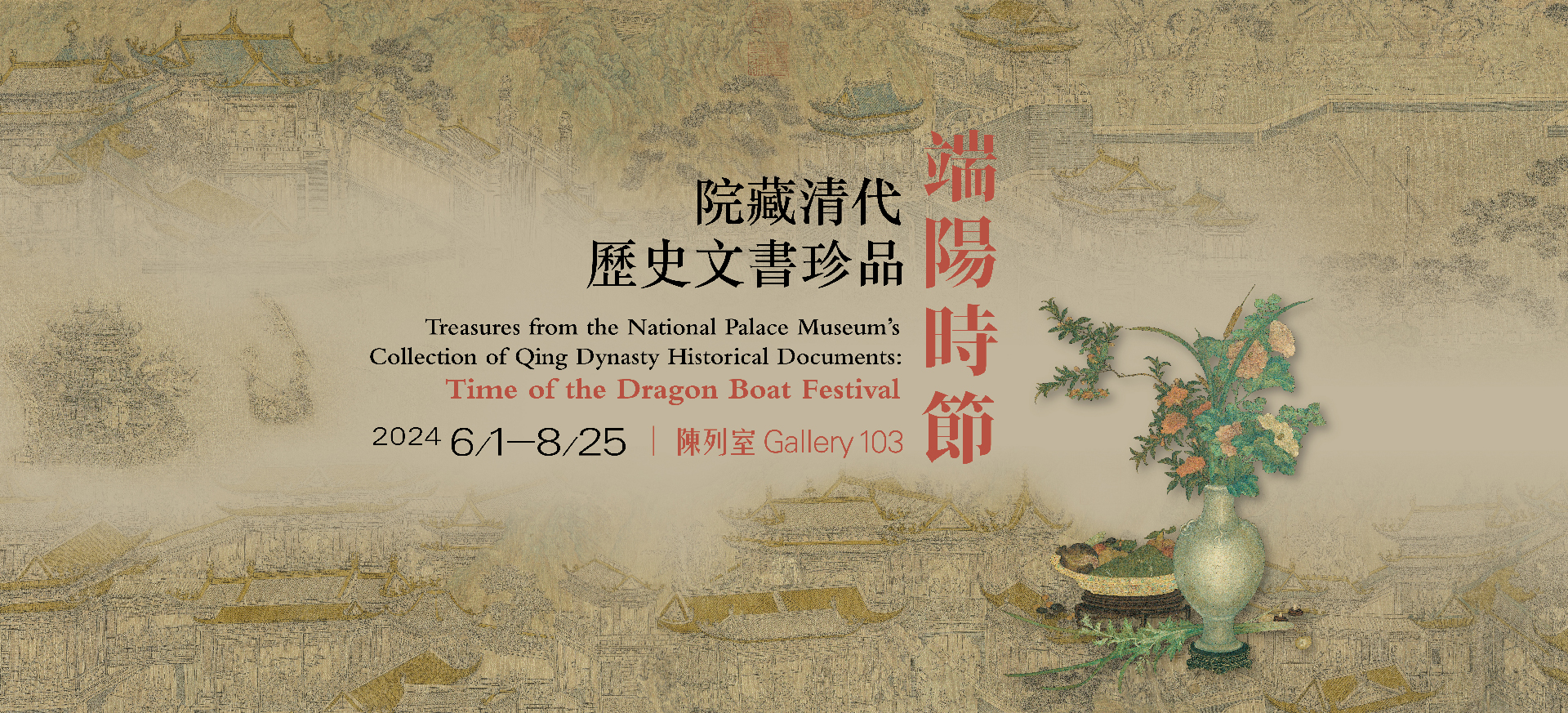Stories of the Double Fifth
The “Start of the Fifth (Duanwu)” Festival, also known as the “Start of the Yang (Duanyang) Festival, “Double Fifth (Chongwu)” Festival, “Midday (Wuri)” Festival, Dragon Boat Festival, “Middle Yang (Zhengyang)” Festival, “Bathing Orchid (Yulan)” Festival, “Middle of the Sky (Tianzhong)” Festival, among others, evolved from its original sacrificial nature to include entertainment activities by the Tang dynasty at the latest. Also, in the Tang, Song, Yuan, Ming and Qing dynasties are records of emperors watching races of manned dragon boats. Because the Manchus of the Qing dynasty court had been exposed to the regulations of the Ming dynasty before they came to rule the country, their Dragon Boat Festival as representing the summer season not only followed Han Chinese customs but also developed characteristics unique to the Manchu Qing court, as seen through the festivities that they celebrated.
-
Daqing Shizu Zhanghuangdi Shilu
Veritable Records of the Great Qing Emperor Zhang, Shizu (Shunzhi)
Fourth to fifth lunar months of Shunzhi reign year 11 (1654), Qing dynasty
Small red silk-bound editionDuring the Dragon Boat Festival in 1654, Emperor Shunzhi gathered his ministers and boarded a large dragon boat for a lake tour in the Western Garden west of the Imperial City.
-
Imperially Poetry on the Forty Views at the Garden of Perfect Brilliance
“Pengdao Yaotai,” an Imperially Composed Poetry on the 40 Views at the Garden of Perfect Brilliance
Written by Emperor Gaozong of Qing (Qianlong)
Published by the Wu-ying Palace with red and black ink printing in 1745The location where Qing dynasty emperors watched dragon boat races during the Dragon Boat Festival was often the Fuhai Lake in the Garden of Perfect Brilliance, a tradition that continued until the late Xianfeng period.
-
Memorial reporting on the incident of Jingzhou Brigade
Bannermen harassing and beating Han Chinese and wrecking shops
Dated to the equivalent of September 4, 1846
Presented by Hengtong, et. al, Qing dynasty (1644-1911)Jingzhou is located in the upper reaches of the Yangtze River and was a vital transit point for travels between Dian, Qian, Ba, and Shu in the past. After the suppression of the Revolt of the Three Feudatories in 1683, a garrison was established in Jingzhou; the garrison was later governed by both Bannermen and Han civilians. In 1846, a confrontation between Bannermen and Han civilians over watching dragon boat races occurred here.


